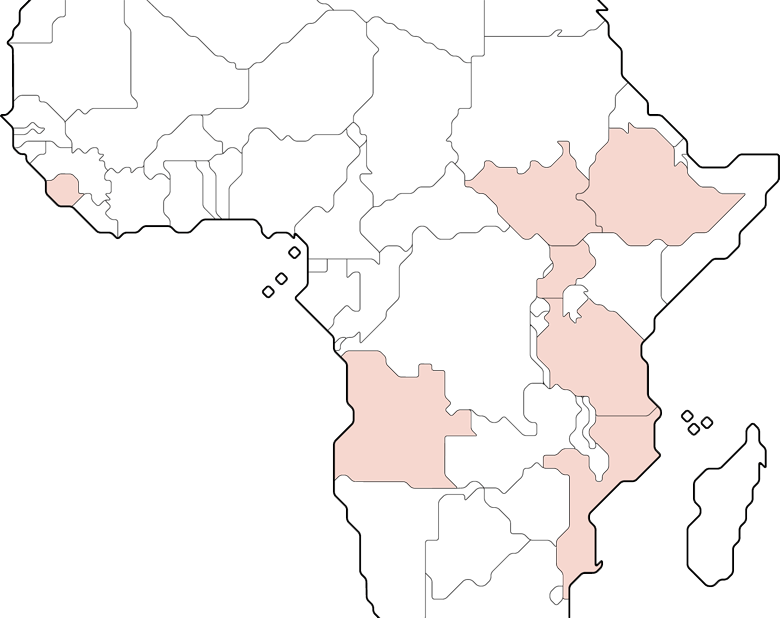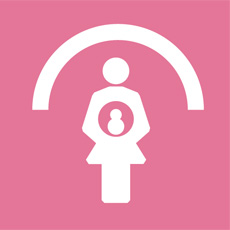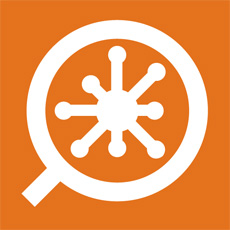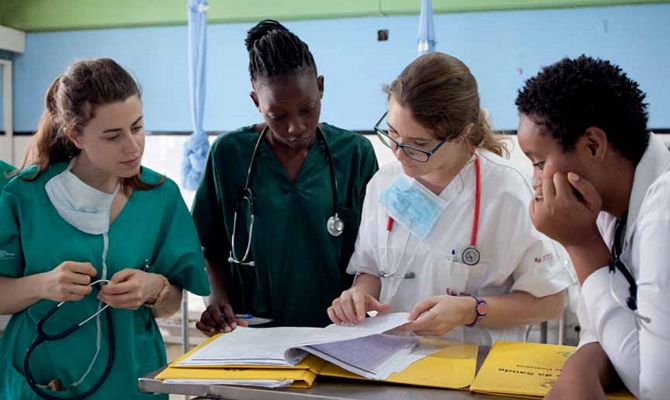Field research, or operational research, is becoming more and more important for our organization. An integral part of our strategic plan, it complements our work on the ground, helping us delivering increasingly effective results.
For Doctors with Africa CUAMM, “Doing research” means studying and getting to know in depth the settings where we work; adopting a critical approach to everything we do; identifying evidence-based good practices; and being fully accountable to all our stakeholders. Finally, it means implementing quality cooperative development activities through networking and partnership with the international scientific community, while focusing on innovation.
Published research
Advanced search
Refine your search using the filters below
Ongoing studies
- Care of premature newborns: woolen caps in addition to the Kangaroo Mother care method
Uganda, Mozambico, Etiopia - Determining heart rate in newborns in need of resuscitation
Mozambico - Diabetes and Tubercolosis comorbidity in Luanda
Angola - Diabetes diagnoses in patients with pulmonary tuberculosis
Mozambico - Examining C-section using the Robson Classification System
Angola, Ethiopia, Tanzania, Uganda - Maternal and child nutrition and health
Etiopia - Snakebite poisoning
Sud Sudan - Surgical infections in HIV patients
Mozambico - Task shifting for pediatric antiretroviral treatment
Mozambico

Care of premature newborns: woolen caps in addition to the Kangaroo Mother care method
- Title of study: Is a woolen cap effective in maintaining normothermia in preterm infants during kangaroo care?
- Focus country: Uganda, Mozambico, Etiopia
- Topic: Maternal and child health
- Abstract:
The weeks after birth are critical for the health of mothers and premature newborns; the highest rate of infant mortality is usually reported in this period due to neonatal hypothermia associated with morbidity and mortality. Earlier studies have shown the reduction of neonatal hypothermia through the use of simple woolen caps during Kangaroo Mother Care. The study’s results will help us understand the actual effectiveness of the use of these caps, well suited to countries with limited resources.

- Researchers: Trevisanuto D., Cavicchiolo M., Putoto G., Del Frate G., Devivo E., Urso E., Varano S., Segafredo G., Wingi, Lanzoni P.
- Partners: University of Padova, Chiesi Foundation
Determining heart rate in newborns in need of resuscitation
- Title of study: Determination of heart rate in infants needing resuscitation at birth
- Focus country: Mozambico
- Topic: Maternal and child health
- Abstract:
In countries with limited resources, stethoscopes are rarely available and heart rates are usually detected by palpitating the umbilical cord. Previous studies on dummies and healthy infants have shown that this method is somewhat inaccurate. The hypothesis is that umbilical cord palpation might underestimate the heart rate, in particular when used on infants with bradycardia. The research objective is to accurately determine methods recommended for detecting heart rate in newborns who require resuscitation at birth.

- Researchers: D. Trevisanuto, G. Putoto, D. Pizzol, G. Segafredo, O. Wingi
- Partners: University of Padova, Catholic University of Mozambique, CEI
Diabetes and Tubercolosis comorbidity in Luanda
- Title of study: Diabetes prevalence among TB patients. Analysis of relationship between TB and Diabetes
- Focus country: Angola
- Topic: Infectious and tropical diseases, Chronic diseases
- Abstract:
The research objective is to determine the prevalence of diabetes mellitus (DM) in patients with TB in health centers in Luanda, Angola. Diabetes mellitus seems to severely affect people with tuberculosis, dramatically increasing patients’ mortality rate due to relapse, recidivism, and reactivation of the TB. Though the data collection is yet to be completed, preliminary results confirm that there is a major correlation between the two diseases. We therefore need to find a solution to treat both diseases jointly.


- Researchers: A. Atzori, G. Quaglio, G.Segafredo, G.Putoto, M. Dall'Oro
- Partners: World Diabetes Foundation
- Related project: Improving diabetes and hypertension diagnosis in TB patients (Luanda).
Diabetes diagnoses in patients with pulmonary tuberculosis
- Title of study: Prevalence and determinants of diabetes mellitus in patients newly diagnosed with pulmonary tuberculosis in Beira, Mozambique
- Focus country: Mozambico
- Topic: Infectious and tropical diseases, Chronic diseases
- Abstract:
Diabetes mellitus (DM) seems to occur in correlation with tuberculosis, having a serious impact on the care of patients suffering from TB. The primary research objective is to estimate the prevalence of diabetes mellitus in new patients with active pulmonary tuberculosis. The next step will be to evaluate the treatment of TB in its different phases in diabetic patients. We will thereby seek to assess the clinical presentation of tuberculosis in diabetic patients, comparing them to non-diabetic patients and noting complications caused by DM in patients with TB.


- Researchers: A. Saracino, E. Graglia, A. Atzori, G. Putoto, V. Manfrin and with the support of CUAMM's JPOs and Beira Health District staff
- Partners: University of Bari, Catholic University of Mozambique
Examining C-section using the Robson Classification System
- Title of study: Examining C-section using the Robson Classification System (to identify women who have had CS for reasons other than as a response to an imminent emergency).
- Focus country: Angola, Ethiopia, Tanzania, Uganda
- Topic: Maternal and child health
- Abstract:
The use of Cesarean sections is on the rise worldwide. However, especially in the low- and middle-income countries, the reasons for its use are controversial and not always to the benefit of maternal health. The research aims to analyze the effect of Cesarean sections at a hospital in Chiulo, Angola using the Robson classification system. Robson’s criteria may be a good starting point for a systematic review of Cesarean births. The classification will also let us implement strategies to reduce the frequency of medically unnecessary primary C-sections.

- Researchers: Del Frate G., Putoto G., Battisti F., Manenti F., Azzimonti G., Massavon W., Devivo E., Atzori A., Segafredo G.
- Related project: Mothers and Children First
Maternal and child nutrition and health
- Title of study: KAP Survey- Qualitative ethnolingustic/anthropological survey to develop proper tools in order understand: social contest stakeholder and opinion leade who play a key role in the community.
- Focus country: Etiopia
- Topic: Maternal and child health
- Abstract:
The project is based on developing anthropological research in order to improve access and use of maternal, child, and adolescent health services in the districts of Hamer and Daasanach in the South Omo Zone, starting from understanding the current condition of women in these two districts. Poor education, lack of money, and long distances from the nearest health center are currently the main factors hindering women’s access to health services for mothers, children, and adolescents. The survey’s second objective is to study nutrition in pregnant women, mothers, and newborns, the traditional practice of newborn care, and the situation of adolescent girls at risk for early pregnancy.

- Researchers: I. Micheli, F. Montalbetti, S. Menozzi, G. Putoto, G. Segafredo
- Partners: University of Trieste
- Related project: Mothers and Children First
Snakebite poisoning
- Title of study: The burden and outcome of snake bites in three rural hospitals and one health center, South Sudan.
- Focus country: Sud Sudan
- Topic: Infectious and tropical diseases
- Abstract:
Snakebites cause death or severe disability, both physical and psychological. However, its recognition as aninternational public health problem has been hindered by inadequate epidemiological data. There is indeed very little data about the severity of snakebites in sub-Saharan Africa and in South Sudan areas. The study’s goal is to observe the number, clinical profiles, and outcomes of snakebites in three different hospitals and one health center in rural areas in South Sudan.

- Researchers: J. Okello, A. Bortolani, R. Harrison, C. Wilunda, G. Segafredo
- Partners: Liverpool school of Hygine and Tropical Medicine
Surgical infections in HIV patients
- Title of study: Identification of the main surgical pathologies in patients with HIV – Nursing Surgery, Central Hospital of Beira
- Focus country: Mozambico
- Topic: Infectious and tropical diseases
- Abstract:
The incidence of HIV in Mozambique is still high and causes thousands of deaths every year. Most studies in Mozambique were conducted retrospectively, and there is still no data on the main surgical diseases affecting patients with HIV. We do not even know what the possible risk factors of these diseases. The research aim is to learn the surgical pathologies and main associated factors affecting HIV-infected patients. Particular attention should be paid to the clinical monitoring of patients to deliver the correct and timely follow-up in order to improve the patients’ prognosis.

- Researchers: E. Graglia, G. Putoto, V. Manfrin
- Partners: University of Bari, Catholic University of Mozambique
Task shifting for pediatric antiretroviral treatment
- Title of study: Effectiveness of Task Shifting from clinical officer to nurses for delivery of paediatric antiretroviral treatment: experience from Mozambique
- Focus country: Mozambico
- Topic: Maternal and child health
- Abstract:
Mozambique has the eighth highest incidence of HIV in the world. Although the number of new infections has decreased since 2001, 14,000 children contract HIV every year. Throughout the country, access to care with treatment has been growing. However, it is estimated that only 27% of children who could benefit from antiretroviral treatment actually started treatment during 2012. The results of the studies will be used to better allocate future investments to treat HIV in the country and to ensure high quality care.

- Researchers: S. Brusamento, A. Cassini, A. Silva, G.Marenghini, M. Karangianis, Kajal, Fumo, Chiesa, G. Putoto
- Partners: Catholic University of Mozambique, UNICEF






